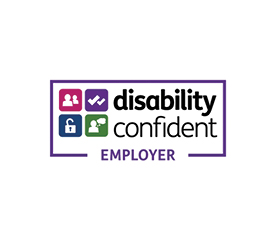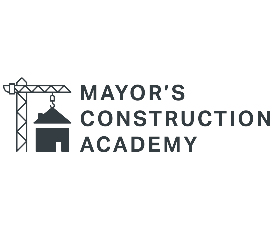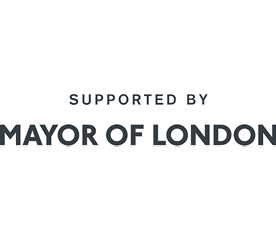
ETF Teach Too – Bringing careers in Health and Social Care to life
Date: 24 June 2020
The pressures on the NHS and public appreciation of the healthcare professionals that safeguard the nation have both grown massively during recent months as the nation has dealt with the Covid-19 pandemic. But filling vacancies in the NHS – particularly in some less-well understood job roles – can be challenging. Kam Dehal, Vice Principal of Business Development for the College Group, explains the ground-breaking work they have undertaken to tackle this problem and the important part participation in the ETF’s Teach Too programme has played in its success.
We had established a successful Care Academy in 2017 and saw the potential to partner with Health Education England and the Surrey and Sussex Healthcare NHS Trust to further develop our work. We knew that kind of collaborative approach, with the principle of a clear line of sight to work at its heart, was a perfect fit for the Teach Too programme.
Building awareness of health and social care career opportunities
Working together, the partners quickly identified that young people often lack awareness of the many and varied career opportunities in health and social care beyond medicine and nursing, with the result that the sector faces persistent skills gaps. That realisation made it clear that one of the most valuable outputs from the collaboration would be for students to have a much clearer view of potential career paths including some of the options of which potential applicants were less aware.
To support that aim, an information, advice and guidance package that would allow young people to meet health and social care professionals from a wide range of roles was developed. The response from students was positive, with the opportunity to interact directly and explore ‘real-life’ scenarios that professionals encountered being grasped keenly.
Curriculum co-design
Another key strand of the project was the co-design and co-delivery of the curriculum, initially around care of the elderly. Through this activity, teachers gained a better understanding of the world of work, gaining insights to employ in their teaching, enabling them to align with Gatsby benchmarks, and arming themselves with an increased knowledge of careers.
Amongst the many benefits of this approach, was that students gained a much more applied sense of the teaching content, enabling them to transition into the workplace more readily, and gain a greater sense of the diversity of career opportunities available in the sector. Practitioners typically took a ‘storytelling’ approach which enabled students to apply the drier theoretical foundations of their learning to stimulating practical applications. And, of course, it isn’t just a single cohort of students that benefits from their teachers’ increased knowledge. Work of this kind is an investment in the future that will be repaid over and over again.
Professional development
Away from the student-facing activities of the project, active engagement between lecturers and practitioners created an inspiring environment to promote discussions and joint planning around combined professional development activities. Those included lecturers taking part in professional staff development alongside practitioners from the Trust, co-curriculum design, planning and – in some cases – delivery.
Unexpected benefits
In parallel to the aimed- and hoped-for outcomes of the project came a much wider range of direct and indirect outcomes. As well as sustaining the College’s previously established Care Academy in East Surrey, it led to a second one being established, with Croydon Council and a range of partners including Higher and Further Education institutions, private training providers and care sector employers, in February 2020.
And from the beginnings of the joint lecturer-practitioner development activities has come a solidly established network and specialised, collaborative CPD programme that sees colleagues upskilling together, providing the most up-to-date curriculum and direct linkage to employment opportunities. This has also helped to establish a professional network of mentoring support for colleagues at the College.
Most importantly of all, the project had a tangible positive outcome on students. They performed better in assessments, finding it easier to recall key aspects of their learning, and they were more engaged when being taught by both lecturers and professionals. Harnessing the impact of the storytelling and its ability to turn theory into practice, further Talking Heads style videos are now being developed.
Getting the message heard
The initiative also helped to reinforce the message about the variety of health careers available on social media, with a significant increase in engagement across platforms including LinkedIn. That has helped to boost interest from school leavers, and applications to begin courses in the 2020/21 year have risen. At the same time the College has increased its provision of information and guidance to adults, and this has also been a success, with numbers applying for Access courses that will lead to healthcare careers also rising.
Joint job fairs have been created specifically for the sector too. These are important because they not only provide an opportunity to explore the 300-plus available job roles, but also provide a mechanism that regularly links students and practitioners. This builds students’ confidence as they explore and prepare for the different job roles.
We’ve also worked very closely with the Careers and Enterprise Company to further develop our online presence and use webinars and support tools to help students, a development that has proved particularly valuable during the Covid-19 pandemic lockdown.
You can do it too
Lots of organisations across healthcare struggle with recruitment to courses, and many respond to those issues by investing time in schools-focused careers work, but our experience shows the power of a collaborative, co-working approach. The access staff and students have gained to experienced clinicians has been transformative.
And this kind of activity doesn’t need to be complicated – in fact, keeping things simple is an important part of the success we’ve enjoyed. During this work we were involved in a college merger and a CQC inspection, and of course there were the normal winter pressures that healthcare face to contend with. But those things didn’t unravel the project and we and our partners were able not only to see through what we had started, but to enable it to flourish. If we were able to do it, I suggest you could too.
For further details of the project read the full case study on the ETF Excellence Gateway website or watch a video featuring Kam, Dr Sarah Rafferty of Surrey and Sussex Healthcare Trust, Sian Sallis of Healthcare Education England, and students talking about the project.
National Apprenticeship Week 2024
05/02/2024
National Apprenticeship Week 2024: Online Events
01/02/2024
Network Rail Apprenticeship Workshop
24/01/2024
Driving Safely in Winter Weather – Top Tips
16/12/2023
College closure for festive break
15/12/2023
Stay Safe Online This Christmas
15/12/2023
The Law on Nitrous Oxide
15/12/2023
Taking Care of Ourselves
15/12/2023
Tips for Managing your Finances
15/12/2023
Excessive Partying – Be Alcohol Safe
15/12/2023
Address: John Ruskin College, Selsdon Park Road, South Croydon, CR2 8JJ
Phone: 020 8651 1131 / Email: info@johnruskin.ac.uk





